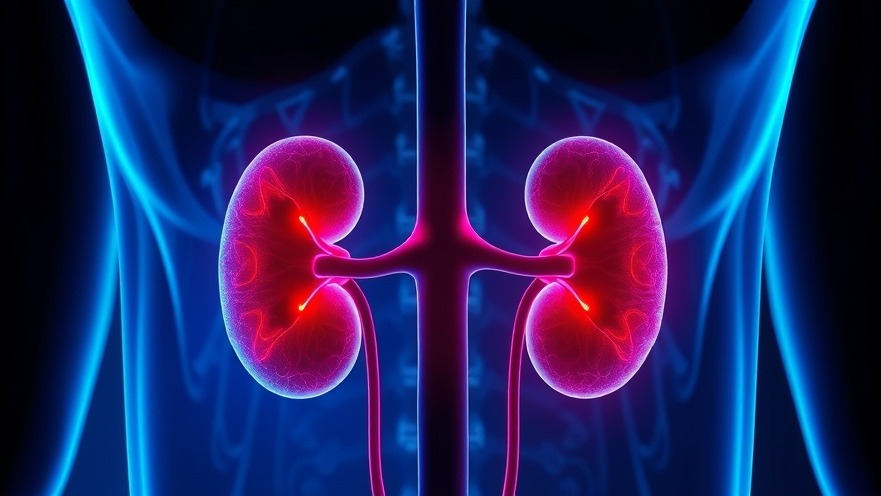
Understanding the Emotional Impact of Kidney Failure
The journey through kidney failure can be complex, both physically and emotionally. Patients and their families are often faced with significant challenges, including adapting to new treatment routines and managing feelings of anxiety and fear. Kidney failure not only affects physical health but reshapes daily life, emotions, and family dynamics.
Exploring Treatment Options: The Patient's Perspective
For patients coping with kidney failure, understanding available treatment options is crucial. The three main treatments—hemodialysis, peritoneal dialysis, and kidney transplantation—each bring their own set of pros and cons. For instance, while hemodialysis typically requires visits to a center three times a week, it offers a structured environment. On the other hand, peritoneal dialysis allows for greater flexibility as it can be done in various locations, empowering patients to maintain some semblance of normalcy in their lives.
The Role of Family in Coping with Kidney Disease
Families play a pivotal role in the emotional and practical support of kidney patients. Open communication regarding treatment decisions and emotional struggles can strengthen family bonds and create a supportive environment. Many families find that discussing fears and uncertainties about treatments fosters a deeper understanding of each member’s concerns.
Addressing Emotional Well-Being: A Vital Component
It’s important to acknowledge that emotions such as anxiety, sadness, or even anger can emerge during this journey. Aiding emotional well-being through mental health support is crucial. Engaging with psychotherapists or support groups can introduce healthy coping mechanisms and provide an outlet for feelings that are otherwise difficult to articulate.
Long-term Adjustments and Future Outlooks
Managing kidney disease isn't a short-term issue; rather, it influences long-term lifestyle decisions. Patients should continuously revisit their treatment choices as their condition evolves. This adaptive approach allows patients and families to remain proactive in their health journey, ensuring they feel empowered rather than overwhelmed.
For concierge medical practice owners, understanding these dynamics is essential. Not only does it enhance patient care, but it also positions the practice as a supportive community for those navigating kidney failure.
Taking Action: The Importance of Being Informed
Knowledge is power, especially when dealing with chronic health issues. By keeping abreast of treatment developments and emotional support avenues, patients and families can navigate their options more confidently. Encourage open conversations in practice settings that address not only the physical symptoms but also the emotional challenges that accompany kidney failure.
Ready to take the next step in supporting your patients? Empower them by facilitating access to mental health resources that enrich their coping strategies.
 Add Row
Add Row  Add
Add 




Write A Comment